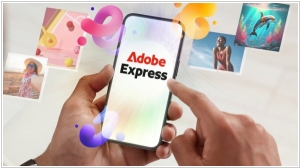Top 10: Messengers for Work
Updated: July 31, 2023
Messengers for work, also known as work messengers or team collaboration tools, are communication platforms designed to enhance workplace communication and collaboration. These tools provide real-time messaging, file sharing, video conferencing, and other features that facilitate seamless and efficient communication among team members. Messengers for work often come with user-friendly interfaces and integrations with other business applications, making it easy for teams to coordinate and share information. With these tools, remote and distributed teams can collaborate effectively, share updates, and discuss projects in real-time, fostering a more connected and productive work environment. Messengers for work have become increasingly popular in modern workplaces, offering an instant and flexible way for colleagues to interact, share ideas, and work together, regardless of their physical locations.
Some of the most popular messengers for work are listed below.
See also: Top 10 Team Messaging platforms
See also: Top 10 Team Messaging platforms
2019. Skype added features for work with important messages
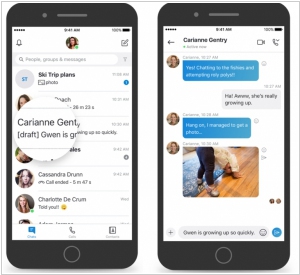
Skype primarily serves as a platform for video communication, but it also aims to establish itself as a versatile messaging application. While competing with established players like WhatsApp and Viber may seem challenging, Skype is exploring new opportunities. In its latest update, the developers introduced some unconventional features for a messaging app: drafts and bookmarks. Drafts enable users to save partially composed messages, allowing them to return to them later and complete them. Bookmarks, on the other hand, allow users to save received messages for quick retrieval at a later time. These features specifically target important messages, suggesting that Skype may be seeking to carve out a new niche that falls between traditional messengers and email. Such functionality could prove valuable for business users.
2019. Slack competitor Facebook Workplace has raised its prices for the first time
After a span of three years and an impressive sign-up count of 2 million paying users, Facebook Workplace is revamping its pricing structure. In the past, Facebook's approach to pricing Workplace was straightforward, setting it apart as a paid service unlike the free Facebook platform. The pricing model was based on the fundamental concept of Facebook as a consumer product: a basic version was available for free, while an upgraded premium edition incurred a flat fee of $3 per active user per month. Now, the standard tier will be rebranded as Workplace Essential and will continue to be free. Simultaneously, the premium tier will be renamed Workplace Advanced and will carry a charge of $4 per person per month. Additionally, Facebook is introducing a new tier called Workplace Enterprise, which will be priced at $8 per person per month. This new tier will provide a range of specialized services, including guaranteed and expedited support, as well as exclusive early access to new features.
2019. BlackBerry Messenger was discontinued (for consumers)
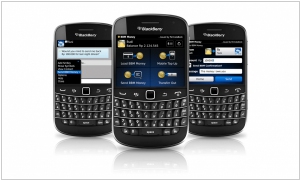
Indonesian media company Emtek, which acquired BlackBerry Messenger in 2016, has declared the discontinuation of BBM. Initially launched in 2005, BBM held a strong position as BlackBerry's flagship product for many years, with dedicated users who remained loyal to the platform even as Android and iOS devices gained popularity. However, increasing competition eventually overshadowed BBM, causing it to lose relevance in the rapidly evolving world of technology. Consequently, the rewards derived from BBM no longer justified the resources invested in its maintenance. It is worth noting that the secure enterprise service, BBM Enterprise, will continue to be available for business users.
2019. Microsoft Teams added features for shift workers
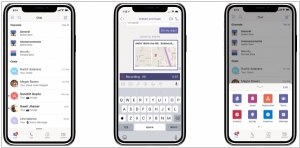
Microsoft Teams has introduced a range of new features specifically tailored for shift workers, also referred to as first-line workers. To address the diverse requirements of different shift worker roles, Microsoft has enhanced the flexibility of Teams on mobile devices. Some workers may need to record and share audio messages, while others may require features like location sharing or camera access. To accommodate these needs, Microsoft has introduced a Firstline Worker configuration policy template that can be customized by IT to align with the specific requirements of various worker types. Additionally, the mobile tool now includes a navigation bar, enabling workers to conveniently add and access the tools they use most frequently. The objective is to streamline the process of accessing necessary tools, considering that these workers are often on their feet or continuously on the move throughout the day.
2018. Group chat Crew launched enterprise version
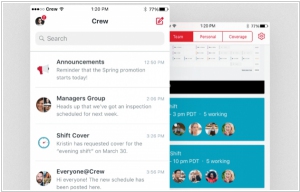
The recently funded messenger app, Crew, has secured a significant investment of $35 million. Catering specifically to businesses employing shift workers who are not typically desk-bound, Crew introduces a new feature known as Crew Enterprise. This feature aims to enhance messaging management across large groups of these workers, providing businesses with improved communication capabilities. With a customer base of 25,000, including prominent names in the food industry such as Domino's Pizza and Burger King, Crew has garnered substantial engagement. While numerous messaging apps exist in the market today, most are designed for knowledge workers who utilize multiple apps throughout their workday and are predominantly stationed at desks using computers, phones, and tablets. In contrast, Crew sets itself apart by targeting the extensive segment of the workforce that prioritizes efficient communication outside traditional office settings.


